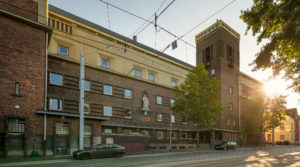Owen Diaz, a Black former employee, said the company ignored multiple reports of racial abuse spanning the year he worked at Tesla.
On Monday, a federal judge in San Francisco ordered vehicle manufacturer Tesla to pay $137 million to a Black former elevator operator at Tesla’s Fremont, California location for ignoring reports of racial abuse the former employee had faced.
Owen Diaz, who worked at Tesla from 2015 to 2016, said that during his time at the factory he and other workers were called the n-word, and told to “go back to Africa.” According to the lawsuit, Diaz also said that racist symbols and pictures were left around the factory. Diaz also discussed Tesla’s discrimination while speaking to the New York Times in 2018. Diaz said his final straw at Tesla was when he saw similar actions being directed toward his son, Demetric, who had started working at the company with the help of his father.
In an interview, Diaz discussed the impact of the judge’s verdict. “It took four long years to get to this point. It’s like a big weight has been pulled off my shoulders,” Diaz said. Mr. Diaz’s lawsuit was one of three filed against Tesla, one of which came from Diaz’s son and the other from another Black employee. Mr. Diaz’s lawsuit was the only one that made it to trial. According to Bloomberg Law, another Black employee was granted $1 million for being called the n-word by a supervisor. Melvin Berry worked at a Tesla plant in Alameda, California in 2015.
Valerie Capers Workman, a human resources executive for Tesla, wrote a message to the company’s staff members following the ruling, downplaying not only Diaz’s statements but his role at the company. Workman claimed that Diaz was not a Tesla employee, but a contract worker. She went on to write:
“In addition to Mr. Diaz, three other witnesses (all non-Tesla contract employees) testified at trial that they regularly heard racial slurs (including the n-word) on the Fremont factory floor. While they all agreed that the use of the n-word was not appropriate in the workplace, they also agreed that most of the time they thought the language was used in a ‘friendly’ manner and usually by African-American colleagues. They also told the jury about racist graffiti in the bathrooms, which was removed by our janitorial staff.”
Workman also said that Diaz’s reports were addressed during his time at Tesla, claiming that his complaints led to the suspension of one contractor and the firing of two others. “We’re still not perfect. But we have come a long way from 5 years ago,” Workman wrote.
It remains unclear whether Tesla plans to appeal Diaz’s case.




